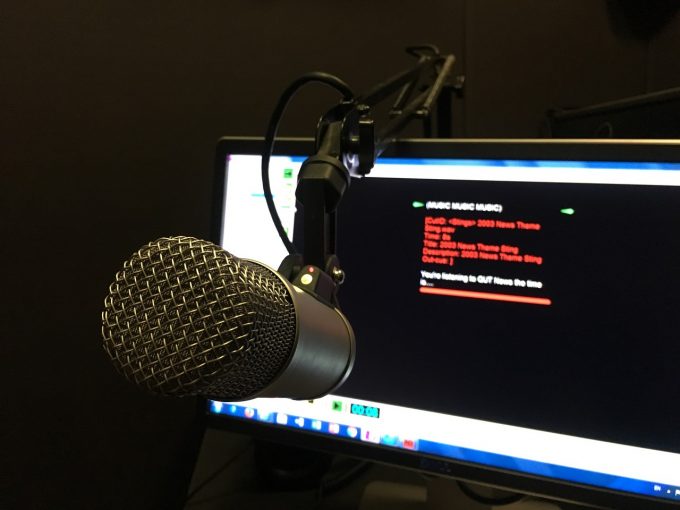In QuotedData’s morning briefing 13 June 2025, we have interim results from AVI Global and River UK Micro Cap, a new director for Polar Capital Global Healthcare and updated long-term data from Syncona’s Autolus Therapeutics.
- AVI Global Trust (AGT) has published interim results for the six months ended 31 March 2025, showing modest gains against a backdrop of volatile global markets. The trust delivered a NAV total return of 1.0% and a share price total return of 0.8%, both lagging the benchmark MSCI AC World Index, which returned 1.5%. AGT has declared an interim dividend of 1.5p per share – up from 1.2p last year – with revenue earnings per share rising to 2.75p from 1.38p. The board expressed confidence in maintaining or potentially increasing the final dividend, barring unforeseen circumstances. 12.7m shares repurchased during the period, adding 0.3% to NAV. As at the end of March, AGT’s shares traded at a 9.2% discount to NAV, broadly unchanged from a year earlier. Performance was supported by contributions from holdings such as Apollo Global Management (+178bps), D’Ieteren (+164bps), and Aker ASA (+88bps), while Rohto Pharmaceutical (-185bps) and Entain (-93bps) were notable detractors. Since the period-end, volatility has increased following the re-election of President Trump and the announcement of new US tariffs, which have unsettled global markets. The managers reiterated their focus on undervalued assets and active engagement, particularly in Japan – now 23% of NAV – and highlighted their ongoing activist efforts at companies including Rohto and Gerresheimer. They noted that the portfolio’s weighted average discount remains near historic wides at 39%, presenting, in their view, an attractive long-term opportunity. An investor presentation is scheduled for 16 June 2025 via Microsoft Teams, where portfolio manager Joe Bauernfreund and head of research Tom Treanor will discuss the results and take questions.
- River UK Micro Cap (RMMC) has reported its interim results for the six months to 31 March 2025, with the company delivering a NAV total return of -2.4%, significantly outperforming its benchmark, the Numis Smaller Companies plus AIM ex Investment Companies Index, which fell 7.4% over the same period. The share price declined by 5.7%, and the discount widened to 17.4%. Despite weak markets for UK small-caps, the trust has seen a relative turnaround in performance and remains optimistic on the outlook. The manager highlighted that many holdings remain significantly undervalued, trading at or near trough valuations, and sees early signs that capital may be rotating back from US equities to UK small and micro caps. A number of holdings made strong contributions over the period, including Windward and Aquis Exchange – both of which received bid approaches – and specialist lender DF Capital. Two new investments were added: Tracsis, a transport software business, and Sylvania Platinum, a South African miner of platinum group metals.
- Polar Capital Global Healthcare (PCGH) has announced the appointment of Stacey Parrinder-Johnson as an independent non-executive director, effective from 1 July 2025. Parrinder-Johnson brings a wealth of industry experience and currently serves as a non-executive director of The Monks Investment Trust and as a governor at the University of Portsmouth. She holds 4,750 shares in the trust. Chair Lisa Arnold welcomed the appointment, noting: “We are delighted that Stacey has agreed to join the Board and we look forward to benefitting from her extensive industry experience and complementary skill set.” A resolution to elect Parrinder-Johnson to the board will be put to shareholders at the next AGM, scheduled for early 2026.
- Syncona has announced that its portfolio company Autolus Therapeutics will present updated long-term data from the pivotal FELIX study of obe-cel (obecabtagene autoleucel) in adult patients with relapsed/refractory B-cell acute lymphoblastic leukaemia (r/r B-ALL) at this year’s European Hematology Association (EHA) Congress. Key findings include a median duration of response of 42.6 months – up 11 months from the previous cut-off – with over half of patients remaining in remission at two years. Notably, 38% of responders were still in remission without needing further therapy at month 33. Importantly, no new safety concerns or serious secondary malignancies (Grade ≥3) emerged during the extended follow-up, reinforcing obe-cel’s favourable safety profile. The data also indicate that obe-cel is effective across both younger and older patient cohorts. In a further development, updated analyses suggest that the ALL-Hematotox model may provide improved risk stratification compared to existing models, potentially helping to better predict treatment outcomes. These results support obe-cel’s potential as a transformative treatment for adult patients with r/r B-ALL.
We also have:
Stories you may have missed from yesterday:
